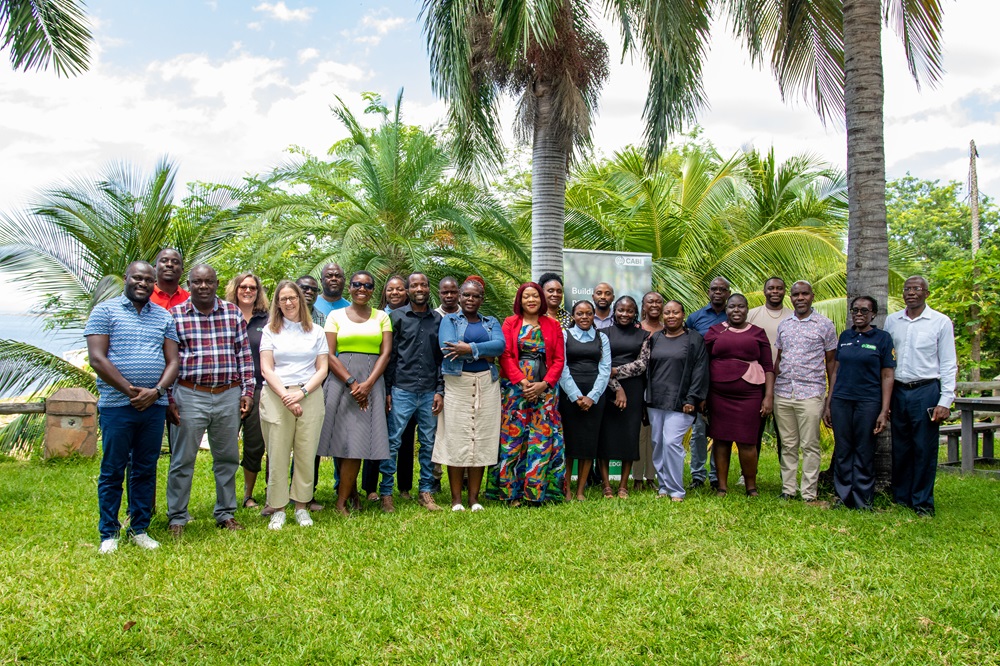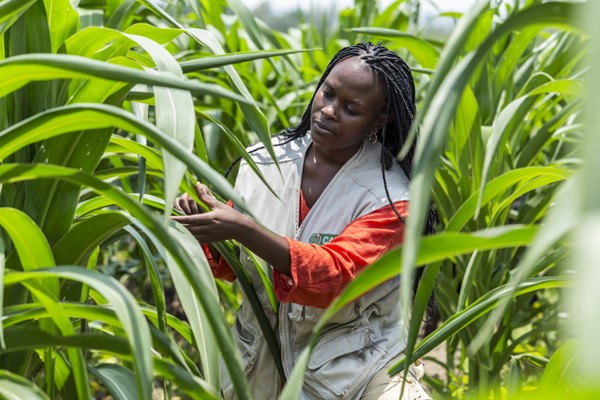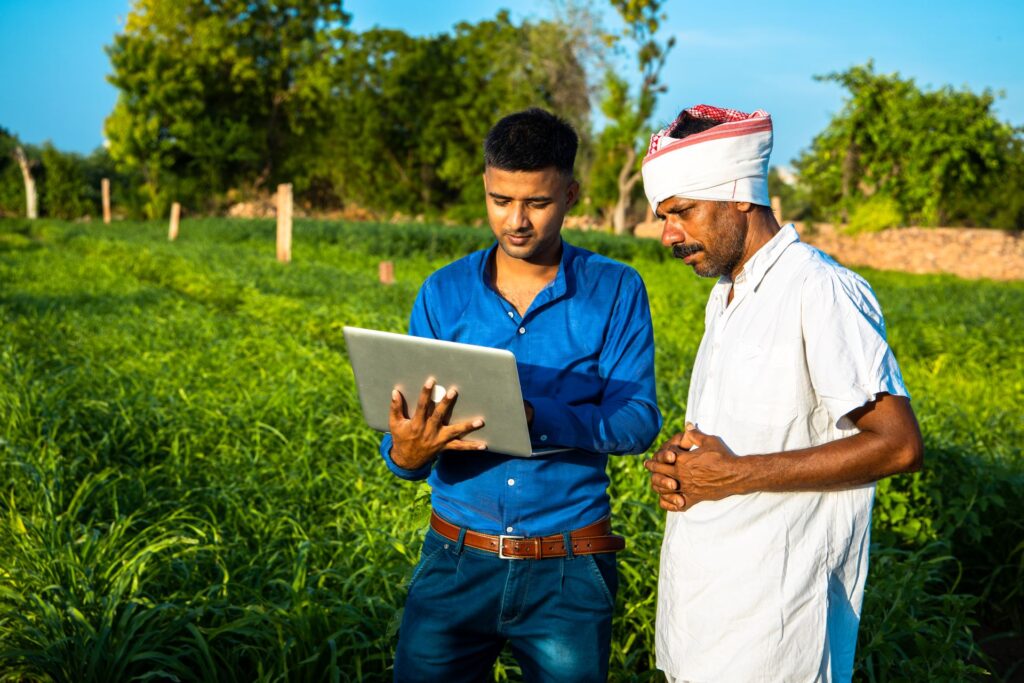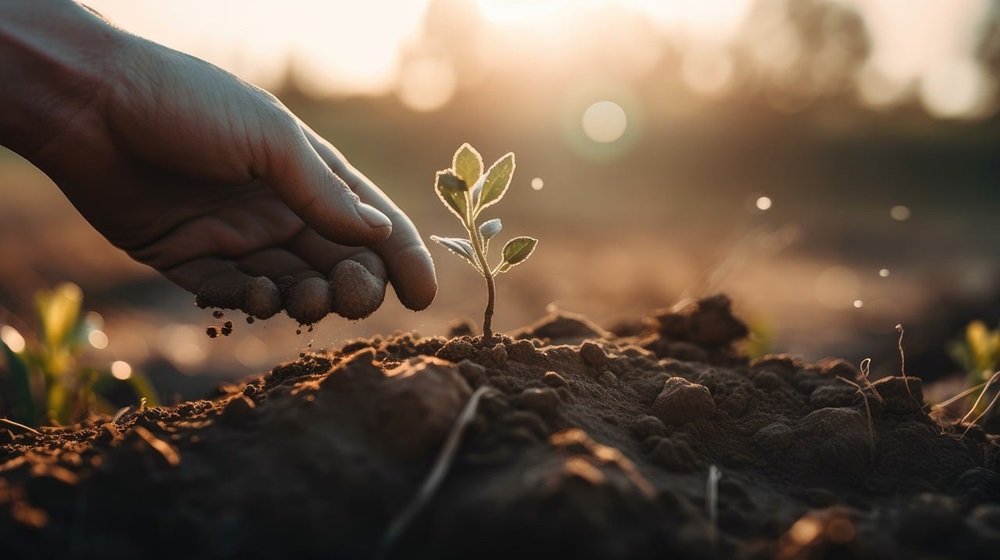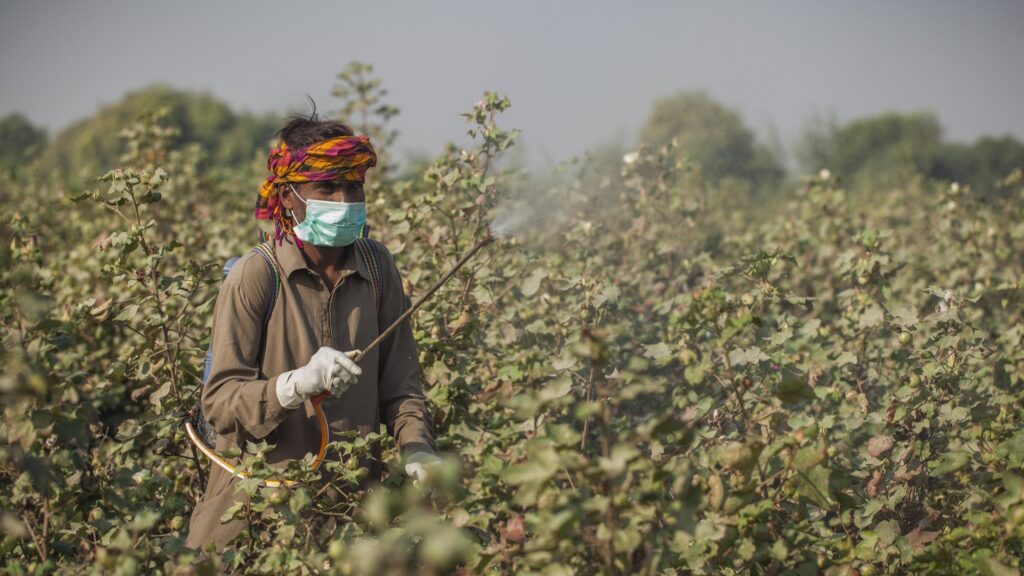CABI Blog
You are here: CABI Blog
CABI hosts panel to discuss youth engagement for biological control of fall armyworm in Zambia
February 12, 2025
Wayne Coles
No Comments
CABI in partnership with the University of Zambia and the Zambia Agricultural Research Institute (ZARI) have hosted a panel to discuss engaging youth for the sustainable biological control of the devastating fall armyworm pest in Zambia.
Advancing evidence-based research: Juno Evidence Alliance
January 31, 2025
Monique Tsang
No Comments
As the world continues to face ever increasing climate-induced food security risks, it is timely to look at how scientific research is being advanced to help enhance agricultural output. One area of advancement is in the production of better evidence. The Juno Evidence Alliance is a global platform that empowers decisionmakers with robust and reliable…
Tripartite collaboration highlights sustainable biological control to fight crop pests in China and South-East Asia
January 22, 2025
Wayne Coles
No Comments
The power of tripartite collaboration has been highlighted at a workshop focused on sustainable biological control and Integrated Pest Management (IPM) to fight a range of major crop pests in China and South-East Asia, particularly Malaysia.
Six steps to implementing FAIR and responsible data practices
January 17, 2025
Boma Beddie-Memberr
No Comments
The FAIR Process Framework was developed by CABI and commissioned by the Gates Foundation to guide organizations toward effective data management. Boma Beddie-Memberr, Project Manager, Data Policy & Practice at CABI, outlines the six steps to implementing FAIR and responsible data. The FAIR Process Framework is a structured six-step approach designed to promote the adoption…
Webinar series explores ways to strengthen capacity on international movement of seeds
January 10, 2025
Wayne Coles
No Comments
CABI has facilitated a webinar series to help national plant protection organizations (NPPOs) with the identifying, assessing, and managing the pest risk associated with the international movement of seeds in the Asia and Pacific region.
Highlights from 2024: Most read blogs
December 17, 2024
Rolanda McGuire
No Comments
As 2024 draws to a close, we’ve tallied the numbers to showcase this year’s highlights on the CABI Blog. From pest management and innovative agricultural courses to youth training initiatives and global recognition, these posts demonstrate the scope of our impactful work. Revisit this year’s most popular blogs…
Paving the way for lower-risk crop protection: Biopesticide regulatory pathways
December 11, 2024
Robert Malek
No Comments
Biopesticides hold great promise for sustainable agriculture, but navigating the regulatory landscape can pose significant hurdles. A recent webinar, Paving the way for lower-risk crop protection: Regulatory pathways for the registration of biopesticides, hosted by CABI, brought together experts to discuss solutions for making biopesticides more accessible by addressing regulatory challenges. Addressing these challenges helps…
Soil health and soil data sharing for food security
December 5, 2024
Wayne Coles
No Comments
Every 5 December, we celebrate World Soil Day. This international observation raises awareness about the importance of healthy soil as the foundation for food security.
Sindh farmer gains global recognition for sustainable cotton farming innovations
December 5, 2024
Wayne Coles
2 comments
Sindh farmer Fateh Muhammad Laghari has gained recognition for his commitment to sustainable cotton farming practices as part of the Better Cotton Member Awards held during the organization’s conference in Istanbul, Turkey.
CABI hosts soil information systems workshop in Ghana
December 4, 2024
Alasdair McKay
No Comments
CABI and its project partners, ISRIC — World Soil Information, and Ghana’s Council for Scientific and Industrial Research – Soil Research Institute (CSIR-SRI), recently held a 2-day soil information systems workshop at the Capital View Hotel, Koforidua, Ghana.
Subscribe to blog
DISCLAIMER
Views expressed in contributions do not necessarily reflect official CABI positions.
Archives
Categories
- Agriculture and International Development
- Veterinary and Animal Sciences
- Climate change and biodiversity
- Publishing
- Value chains and trade
- Crop health
- Environmental Sciences
- Human Sciences
- Tourism, Hospitality and Leisure
- Food and nutrition security
- Plant Sciences
- Gender and youth
- Digital development
- Development communication and extension
- Economic development
- Invasive species
- CABI Bioservices
- One Health


